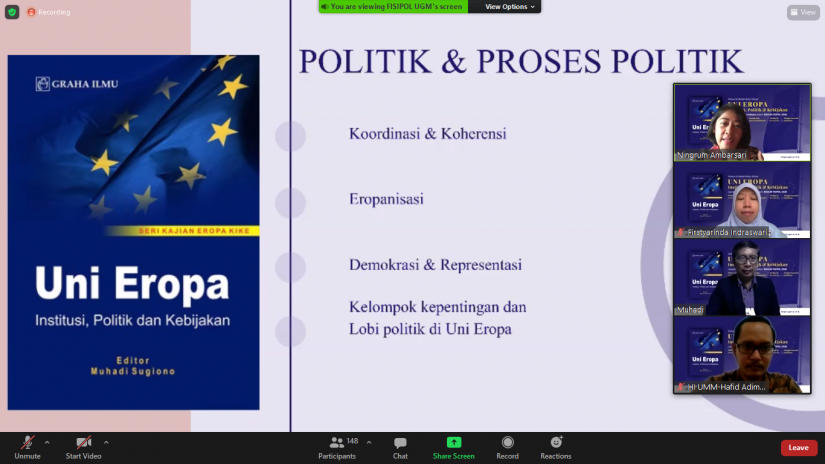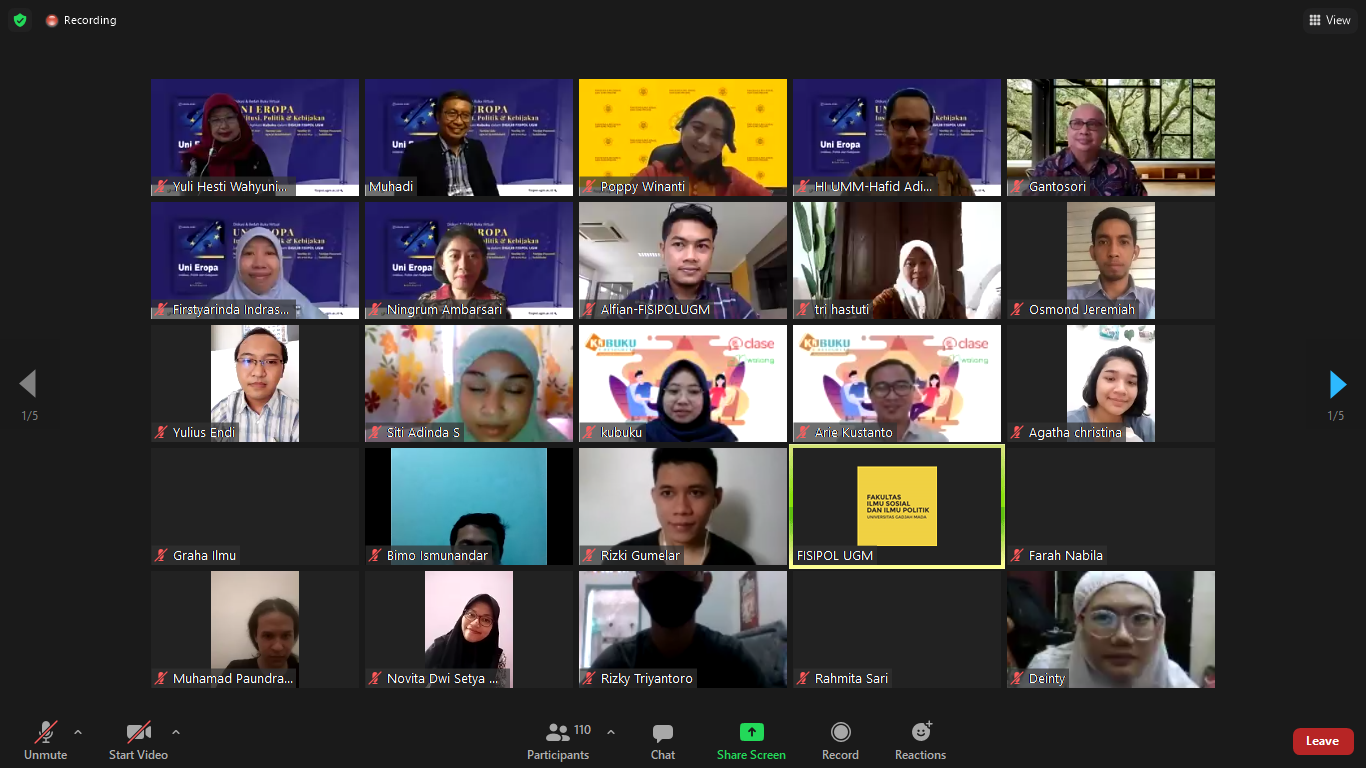
Yogyakarta, January 26th 2021—Fisipol UGM Library held a discussion and book review event titled “European Union Institution, Politics, and Policy” on Thursday (26/Jan). This event also includes the Kubuku application launch in the Digital Library (DIGILIB) Fisipol UGM. The discussion and book review invited three speakers Hafid Adim Pradana, M.A., from Malang Muhammadiyah University; Paramitaningrum, Ph.D., Bina Nusantara University; and Ningrum Ambarsari, S. Sos., MBA., Prof. Dr. Moestopo University. This discussion also invited Muhadi Sugiono, M.A., the book editor as a speaker and Firstyarinda Valentina Indrawati, S. Sos., M.Si., from Brawijaya University as a moderator.The event was held online through Zoom and the committee distributed ten free books for attendees. The discussion was opened with an opening speech from Dr. Poppy Sulistyaning Winanti, M.P.P, M.Sc. as a Vice Dean of Cooperation, Alumni, and Research FISIPOL UGM. In her speech, Poppy said that DIGILIB FISIPOL is a testimony of Fisipol commitment to develop education through the use of technology. One of them is through creating an online discussion.
“This morning’s activity is also a way for DIGILIB Fisipol not only to provide information but also to be a virtual discussion forum,” said the International Relations lecturer. Muhadi as the book editor talked about the long process they went through until the book was published. At first he said that the main idea of the book is a textbook that can be introduced for Indonesia university students who are interested in European Union. He said that the drive to create the book is stronger as the European Union delve deeper into many crises. “These crises are added by the severity of Brexit, which creates a sceptical view towards the EU, or people seeing that Europe is a failure,” Muhadi said.

The discussion was then followed by comments from three other speakers about the different parts of the book that consist of fourteen chapters. Hafid commented on the first chapter which is about the history of the development of European Union and the second chapter about the institutions in European Union. Different from Hafid, Ningrum talked about politics and the political process in the EU. There are four different points that Ningrum talked about which are coordination and coherence, Europeanization, democracy and representation, as well as interest groups and lobbying in the EU.
Paramita as the last speaker talked about the chapter about policy. Paramita divided the presentation in two parts which are her analysis on the technical aspect and content of the book. Paramita said that this is a good textbook and added that it still needs several notes that the writer can add. “Generally, this is a very good book to learn the fundamentals of the EU,” she added.


